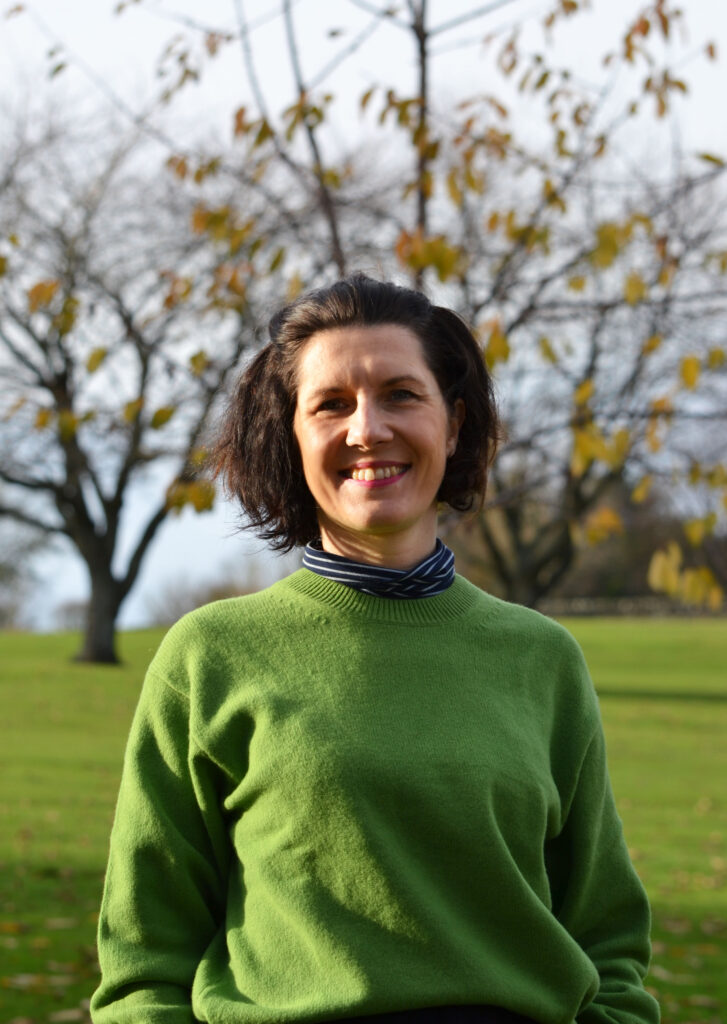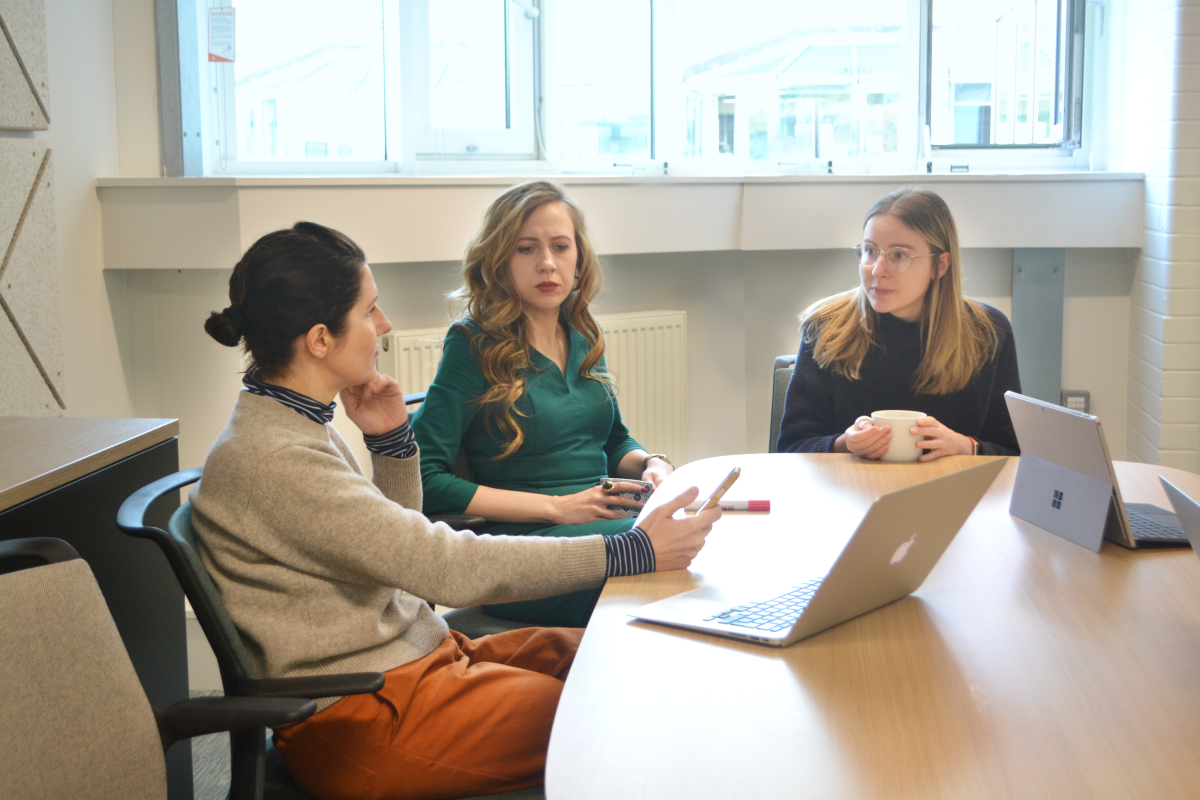1. Can you share your journey and experience as a female co-founder in the sustainability and waste management industry? What inspired you to co-found Carbogenics?
“It is more that 15 years now that I have been working within the waste management industry, focusing on converting waste resources into viable products, energy and bio-fuels.
In my role as a Business Development Manager at Scottish Biofuels Research Center at Edinburgh Napier University, I worked with many companies looking to find a more sustainable way of dealing with their waste products.
I first learned about Biochar and pyrolysis from Prof. Ondrej Masek at the UK Biochar Research Centre and I was fascinated with the opportunities this technology provides and relative lack of understanding and appreciation of its carbon removal potential.
My family is very entrepreneurial and I have seen first-hand how challenging and how energising running your own business can be. Therefore, I have jumped at the opportunity to join Dr. Jan Mumme in setting up and running Carbogenics.
Carbogenics’ circular economy business model and its potential role in advancing the carbon removal agenda aligned well with my values and gave me an opportunity to use my skills and knowledge in an entrepreneurial world.”

2. As a woman in a leadership role, have you faced any unique challenges or opportunities in the business world, particularly within the context of Carbogenics’ mission?
“I’m the oldest of my siblings and cousins so I have always been ‘’in charge’’. Early on I learned that responsibility, team work, organisation and respect are the key to success. Women do face unique challenges. I think one of the biggest for me was balancing my role as a single mum and a business leader, there is a lot of emotional labour involved in parenting and managing people and sometimes you are just exhausted. On the other hand, you might have a bit more experience in managing relationships as a female leader rather than a male, as you are required to do that since you are very little. Networking is vital for leadership roles and again it might be challenging if a lot of business is conducted ‘’outside of the working hours’’ and involves a lot of travelling. However, the entrepreneurial life offers a lot of flexibility and with supportive colleagues and delegation it can be the best place to be for a woman. The rise of video conferencing has been an important change for both women and men in the labour market but mainly for women. A lot can be done on Zoom call. The other challenge is simply being ‘’the one in the room’’. It is a bit intimidating when you are the only woman in the room full of ‘’engineers’ experts’’, ‘’technical experts’’, ‘’legal experts’’,‘’business experts’’ all mainly men. Usually you are the smaller one (size wise) your voice is quainter (not my problem) so it is more challenging to assert your place in the group. It is more difficult for a woman to ‘’bluff’’ her way through the conversation, and I do know that both men and women do that, you need to know your stuff from the get go! Imposter syndrome is a big one, I think for both men and women in leadership positions. Men are just a bit better at hiding it, after all they have had to act strong and competent since they were little . It is also difficult to participate in the ‘’small talk’’ and build rapport if you don’t know football, rugby or other sports. However, all the men in the room are also fathers, husbands, boyfriends and they welcome shifting the small talk from Sports into areas that women might be more comfortable with.3. The tech and environmental sectors have traditionally been male-dominated. How have you navigated and contributed to breaking down gender barriers and promoting diversity within Carbogenics?
“Entering any industry takes time to fit in, gain respect, prove yourself but I guess women entering male-dominated industries start from a slightly different level. We need to not only demonstrate competence but also challenge some stereotypes about our sex in general at the same trying to be our ‘’authentic self’’. We are a bit of a ‘’wild card’’ we can surprise and shake things up, shift it our way. I think my role as a woman in business is to strive to be good in what I do, learn, take my place ‘’at the table’’ so we can normalise female presence in C-suites. I think we can offer different perspectives, and challenge the way we do business. I think participation in decision making at strategic level, learning how to ‘’play the game’’ is very empowering and demystifies the world of ‘’senior executives’’ a lot. We do have rather diverse, international team with more women than men. I would like to think I do have an impact on how female employees feel in our company. Having a woman in a leadership position, shows that it is ‘’ normal’’ and encourages other women to feel confident. Seeing how my voice is respected and appreciated by the men in our company is also a good way to empower other female employees. I make it my mission to build positive relationships with the whole team at Carbogenics.Having both a female and a male in our senior leadership team assures that diversity and equality is not only firmly written into our HR policies but also executed in practice.”4. In your experience, what role does gender diversity play in fostering innovation and creativity within the company? How does Carbogenics promote an inclusive work environment?
“I think innovation and creativity is not assigned to either male or female – it can only be the work of a collaborative environment where people are given space and respect to voice their opinions and new ideas. I think we can offer different perspectives, and challenge the way we do things if we work more collaboratively and I think female leaders are slightly better and more skilled in facilitating this environment.”5. Sustainability is a key focus for Carbogenics. Do you believe there are unique perspectives or approaches that women bring to the sustainability conversation, and if so, how have these influenced Carbogenics strategy?
“I think mitigation of Climate Change can only be actioned through a collaborative, community-based approach. There is no space for power struggles, fighting for territory. There is no one ‘’solution’’ to the problem. It requires sacrifice, hard work, collaboration, education and organisation. It requires putting the environment above our own personal needs and wants. I think women have a big role to play. Women in our company are all driven by the sustainability agenda. They chose to work with Carbogenics (often sacrificing better options) attracted by the mission and values of our company.”6. Can you share any specific achievements or milestones that you are particularly proud of as a female co-founder at Carbogenics?
- Building fantastic team of people and keeping them engaged and motivated even in the hardest of times.
- Winning the Scottish Edge and Converge Challenge back in 2018
- Securing the first round of investment for Carbogenics in 2019 supported by Techstart and OCC.
- Developing Carbogenics Sales and Marketing strategy and leading on its delivery.
- Building a fantastic network of contacts in the entrepreneurial ecosystem in Scotland, Biochar and Biogas industry.
- Learning a lot about technology including; Pyrolysis, Anaerobic digestion and Carbon Removal Technologies.”
7. How does Carbogenics support the professional development and career growth of women within the organisation, and what initiatives are in place to encourage more women to enter the industry?
“Start- up life is challenging but also an amazing environment to grow professionally. Each of us at Carbogenics is asked to learn new skills, take on new roles and operate outside of our comfort zone. Our employees participate in the ups and downs of our company. We take risk, we make mistakes and take responsibility collectively. I would like to think there is plenty of opportunities to step up and drive individual ideas forward and a lot of trust.”8. Collaboration is crucial in the startup world. How do you build and nurture partnerships, and do you see any gender-related dynamics in these collaborations?
“I think collaboration can be nurtured by working in team, trusting and supporting each other. At Carbogenics we take risks, when we make mistakes we share responsibility, when we win we share success together. We appreciate and recognise the contributions that we all make.”9. As a co-founder, how do you balance your responsibilities within Carbogenics and maintain a work-life balance, especially considering the demanding nature of startup environments?
“I have learned to put boundaries around my free time and work. I have very supportive CEO and fantastic team. I’m not afraid to admit that I’m tired and not coping. I have family and friends to listen to my complaints and I exercise, walk and dance.”10. What advice would you give to aspiring female entrepreneurs interested in entering the sustainability and tech sectors, based on your experiences as a co-founder at Carbogenics?
“A start- up is a fantastic environment to learn but don’t expect stability and clear structured work. The advice below is something that I tell myself all the time! So, by no means have I achieved that. Don’t be afraid to fail (I’m still very afraid). Don’t be afraid to want it all.- You do not have to be an expert in what you do to start your entrepreneurial journey, find your experts.
- Don’t get intimidated by experts, ask your questions calmly or emotionally as you feel fit.
- You can be discouraged and fed up for a day or 2 that’s okay. Just get up and fix the problem, there is always some way out!
- Always be angry if you have a reason for it. Be ecstatic if you have a reason for it!
- You have the right to be exhausted and take time.
- You do not have to attend every networking event! Be selective. Be focused.




